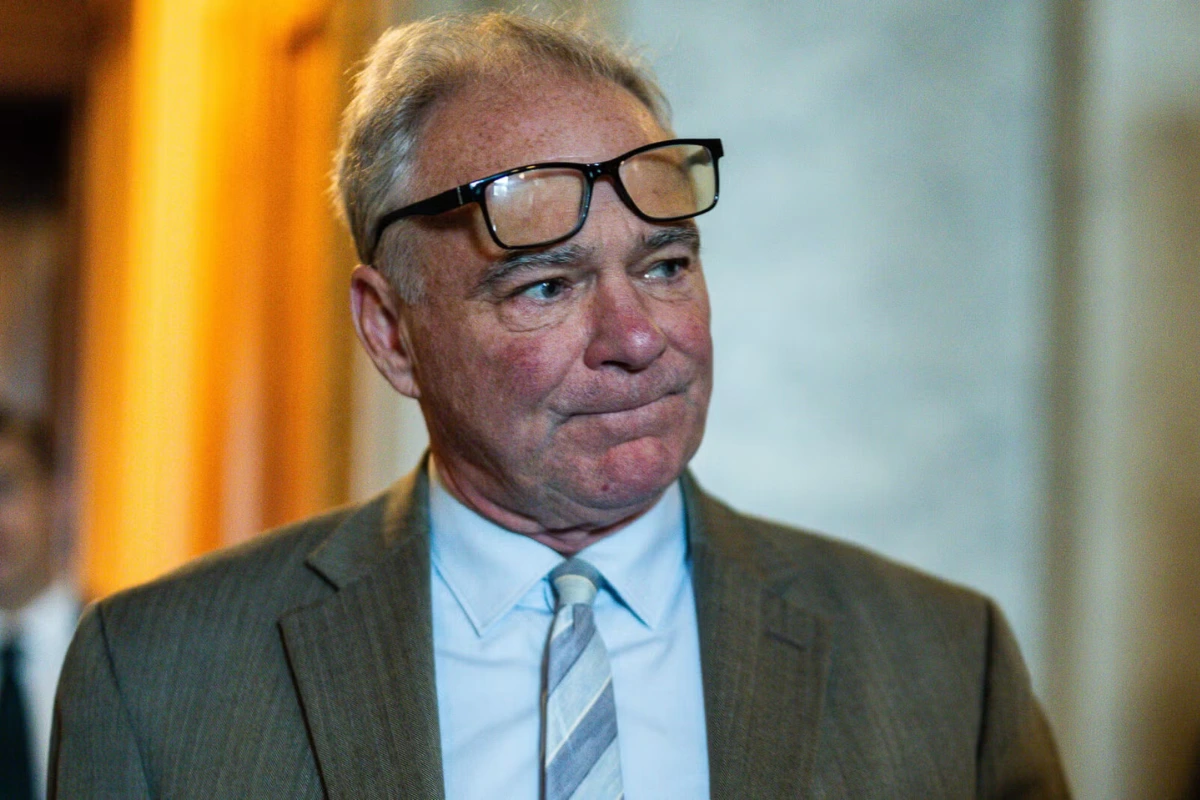
This article originally appeared here, at dailysignal.com.
In 2006, Virginia Gov. Tim Kaine signed a bipartisan bill requiring the Virginia Department of Motor Vehicles to provide a list of noncitizens’ names to the state’s Board of Elections for removal from the voter rolls.
Now, less than a month before Election Day, the Biden-Harris administration’s Justice Department is suing in hopes of restoring 6,303 noncitizens to Virginia’s voter rolls who were removed in August.
Subsequent Virginia governors since Kaine, both Republican and Democrat, have overseen the removal of noncitizen voters from the rolls.
In August, Virginia Gov. Glenn Youngkin, a Republican, signed an executive order to do so, in part relying on the 2006 law drafted by then-state Sen. Ken Cuccinelli.
“It passed without much controversy, about 2-1 in the Legislature, and then Tim [Kaine] signed it when he presented himself as a centrist,” Cuccinelli, a Republican who was elected as Virginia’s attorney general in 2009, told The Daily Signal.
“This is pure political timing,” Cuccinelli said of the Biden-Harris administration’s legal action. “These are literally people who self-identified as noncitizens.”
“If the purpose was to generate news, that’s what the DOJ has done,” he said. “They want noncitizens, both legal and illegal, to vote.”
Kaine, who signed the 2006 bill into law, went on to become a U.S. senator representing Virginia as well as Hillary Clinton’s vice presidential running mate in 2016.
The Daily Signal sought comment from Kaine’s Senate office as well as his reelection campaign.
Kaine’s campaign referred to a July interview with WJLA-TV (Channel 7), in which a reporter asked: “Should non-U.S. citizens vote in American elections?”
Kaine replied: “No. Voting should be reserved for U.S. citizens.”
The campaign also noted that a Kaine campaign spokesperson told WJLA on Wednesday:
Sen. Kaine believes that noncitizens should not vote in state or federal elections, and that’s why he signed legislation as governor to guard against it. It is illegal for noncitizens to vote and the good news is that there is no evidence that noncitizens have voted or are voting in Virginia.
And just as we want to block noncitizens from voting, we need to keep eligible voters from being purged from voting rolls, particularly just weeks from an election. Sen. Kaine is focused on making sure that every eligible Virginian has the opportunity to vote in this critical election.
The matter likely won’t be resolved in court by Election Day, Cuccinelli said, now the national chairman of the Election Transparency Initiative. However, he said, the Justice Department’s lawsuit seems to be intended as a warning for other states not to clean up voter rolls.
The lawsuit alleges that Virginia’s removal of noncitizens from voter rolls violates the National Voter Registration Act, better known as the “motor voter law,” because the removal comes fewer than 90 days before an election.
DOJ’s action follows a federal lawsuit filed by the Virginia Coalition for Immigrant Rights and the League of Women Voters of Virginia in which those organizations make the same arguments.
“These liberal groups sued Virginia and then a few weeks later the Justice Department files the same lawsuit,” Katie Gorka, chair of the Fairfax County, Virginia, Republican Committee, told The Daily Signal.
“This shows they are nervous about Virginia,” Gorka said of leading Democrats. “It used to be a solidly blue state and now has moved to the middle and is a toss-up.”
“They are going for the optics and this is going to backfire. Americans overwhelmingly believe that only Americans should vote,” she said.
The plaintiffs in the private lawsuit in Virginia are represented by Campaign Legal Center, Protect Democracy, the Lawyers’ Committee for Civil Rights Under Law, and the Advancement Project.
Three organizations involved in the litigation—the League of Women Voters, the Advancement Project, and Campaign Legal Center—participated in a White House conference in 2021. That meeting was about implementing President Joe Biden’s Executive Order 14019, which directed federal agencies, including the Justice Department, to partner with private interest groups to boost voter registration and turnout.
As The Daily Signal previously reported, the Justice Department last month brought a similar lawsuit against Alabama for removing noncitizens from that state’s voter registration rolls.
A similar lawsuit was brought against Alabama by the Southern Poverty Law Center, a far-left organization known for labeling mainstream center-right organizations as “hate groups” similar to neo-Nazis or the Ku Klux Klan. The SPLC also was represented at the White House conference on Biden’s election executive order.
The Justice Department has invoked “presidential privilege” to prevent release of its strategic plan for implementing Biden’s order of March 7, 2021.
Still, Cuccinelli said, he thinks “for sure” the Virginia litigation is tied to the president’s order.
“They are hiding communications all over the place,” the former Virginia attorney general said. “There is no way to treat these as privileged. It is pure collusion and weaponization of government through these outside groups.”
The Daily Signal sought comment from both of the private litigants in the Virginia case: the League of Women Voters and the Virginia Coalition for Immigrant Rights. Neither responded.
The Justice Department filed the lawsuit Oct. 11 in U.S. District Court for the Eastern District of Virginia.
“As the National Voter Registration Act mandates, officials across the country should take heed of the law’s crystal clear and unequivocal restrictions on systematic list maintenance efforts that fall within 90 days of an election,” said Assistant Attorney General Kristen Clarke, head of the Justice Department’s Civil Rights Division.
“By canceling voter registrations within 90 days of Election Day, Virginia places qualified voters in jeopardy of being removed from the rolls and creates the risk of confusion for the electorate,” Clarke said in the public statement. “Congress adopted the National Voter Registration Act’s quiet period restriction to prevent error-prone, eleventh-hour efforts that all too often disenfranchise qualified voters.”
